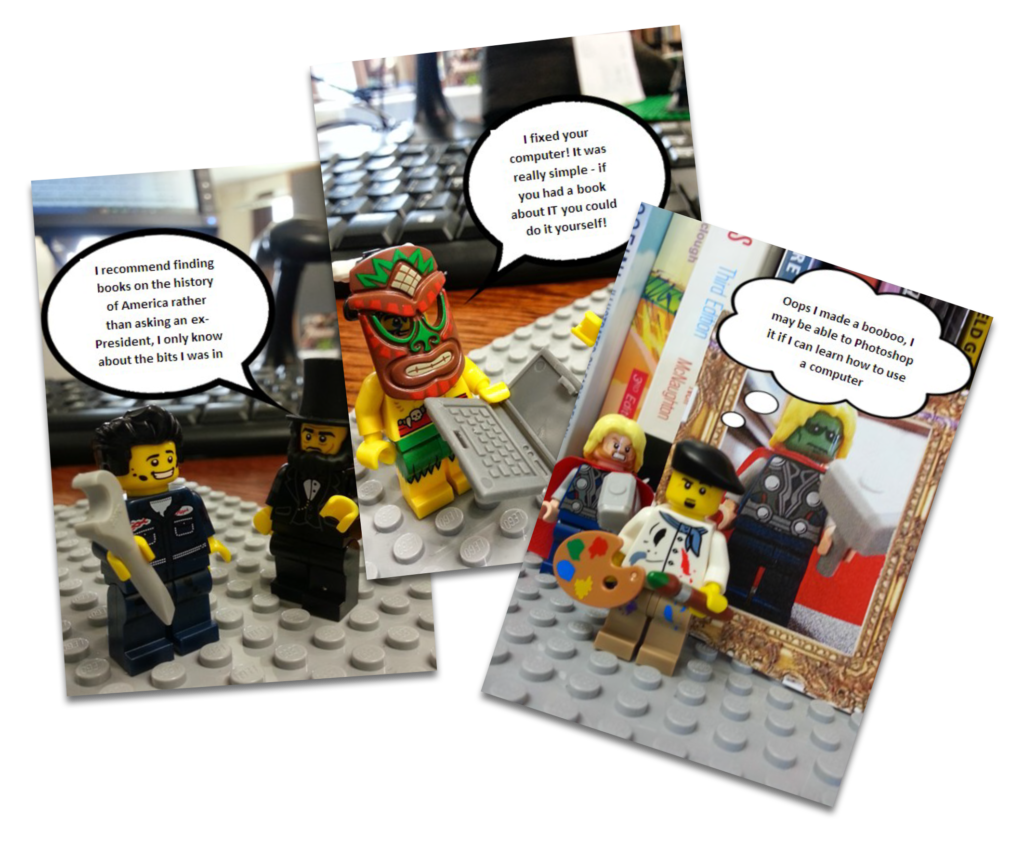Subject: Pupil librarians
Focus: Promoting the library through student involvement
Focus: KS2
Synopsis: A look at how selection, training and supporting pupil librarians can engage the whole school in sharing books and reading.

Frances Trimming and Abigail Squire
West Sussex SLS
Librarian’s view:
It’s easy to think, when recruiting Key Stage 2 children to help in the school library, that you should be looking for those who are good readers write Frances Trimming and Abigail Squire from West Sussex SLS. But if we think about the key tasks involved in looking after the library on a day-to-day basis, then you need someone with common sense; working knowledge of the alphabet and decimal number system; the desire to help other people plus curiosity and a thirst for knowledge. Ideally, they should also have an ability to stay on task and be self-motivated. In short, they need to love the library.

Pupil Librarians
Schools recruit pupil librarians for a variety of reasons:
- To support the school librarian in maintaining the library so that those that use it can find what they are looking for.
- To support their peers and younger children in finding and using the resources during breaks, before and after school.
- To act as ‘library champions’ to advocate in assembly, during book weeks and at any time when reading for pleasure is a key component of the school day.
Student recruitment
The key responsibility of a pupil librarian is to love their library. If we are to encourage children to have agency in their library and enthuse about the books stocked, then students will need to feel part of the decision-making process from the word go.
Below are some key points worth considering when recruiting, training, and supervising your pupil librarians.
What can a pupil librarian offer the school?
- Regular help with the day-to-day library tasks, plus other library projects.
- An enhanced sense of ownership of the school library amongst pupils.
- Raising of the profile of the library across the school.
- Promotion of the role and services of the library to the school community.
What can the school offer pupil librarians?
- Increased self-esteem and confidence.
- Opportunities for taking on responsibility.
- Development of key skills such as communication, independent learning, problem solving and teamwork.
- Rewards for the contribution that they make.
Who can be a pupil librarian?
West Sussex SLS recommends recruiting pupils from all year groups as library champions to support their peers in using the library effectively. Recruiting for each year group ensures sustainability. They should be trained to the appropriate level, according to their age/year group with a named TA/teacher to report to. Personal characteristics are more important than reading ability when recruiting. For example, they should be kind and approachable with a desire to help other people. If they have good organisational skills, even better.

Induction and training
The School Library Association has a very comprehensive toolkit which members can download. https://www.sla.org.uk/pupil-librarian-toolkit
However, if you are not a member here are some key points to consider when inducting your pupil librarians:
- Decide on a rota and encourage them to maintain it themselves (i.e., if someone can’t help on a particular day, then they should find another pupil librarian to swap with). Schools in West Sussex have shared the tools they use to support pupil librarians, and these can be accessed via the WSCC Schools Library Service webpages.
https://schools.westsussex.gov.uk/Page/13485 - Meet as a group on a regular basis to discuss any issues that have come up, share ideas and troubleshoot problems – ideally supervised by the school librarian. The children should know who they can approach to talk about library activities and discuss any problems that occur as part of their role.
- Talk the pupil librarians through the responsibilities of the role including confidentiality when using IT, signposting advice rather than giving it, helping each other and acceptable behaviour in the library. Be sure to introduce the supervising adult so they can speak to them about any issues whilst in the role.
- Conduct some role play/initial induction training on how to organise the books in the library and the reason behind it. Youth Services librarian, Matt Imrie, has created a Dewey game using Lego characters as his inspiration that can be customised to suit an individual school’s needs. LINK However, any introduction to your own school’s fiction and non-fiction organisation, and how to locate books using both the computer and the Dewey index, will be useful training for your pupil librarians. https://teenlibrarianblog.files.wordpress.com/2017/07/ddc-card-game-dewey-and-picture-cards-x.pdf
Obviously, the key job roles in the library will be related to maintaining the book stock, shelving, tidying, issuing and returning books, and supporting users of the library. However, there is a wider advocacy role which your pupil librarians could be involved in. By working in the school library, they will become aware of what’s popular and what are the current trends and demands. They may also have favourite books of their own which they would like to promote. Assemblies, book groups and school events can all be times for pupil librarians to advocate for the library.
Motivation and incentives
It’s important to acknowledge the work pupil librarians do in the same way as any student in school is rewarded for their contribution to the wider school community.
This could be provided in a library-related way, by offering pupil librarians the opportunity to select new books when funds are available, be involved in a whole school project, or to devise their own ideas for fundraising to provide a budget for new books. In West Sussex, pupil librarians are invited to visit the SLS base in Worthing Library to help the school librarian select the new books for the coming term’s exchange. At the end of their term of service it is always nice to present a certificate, or other acknowledgment of their contribution, in accordance with school protocol.
Resources Highlighted:
- www.sla.org.uk/pupil-librarian-toolkit
- schools.westsussex.gov.uk/Page/13485
- teenlibrarianblog.files.wordpress.com/2017/07/ddc-card-game-dewey-and-picture-cards-x.pdf

